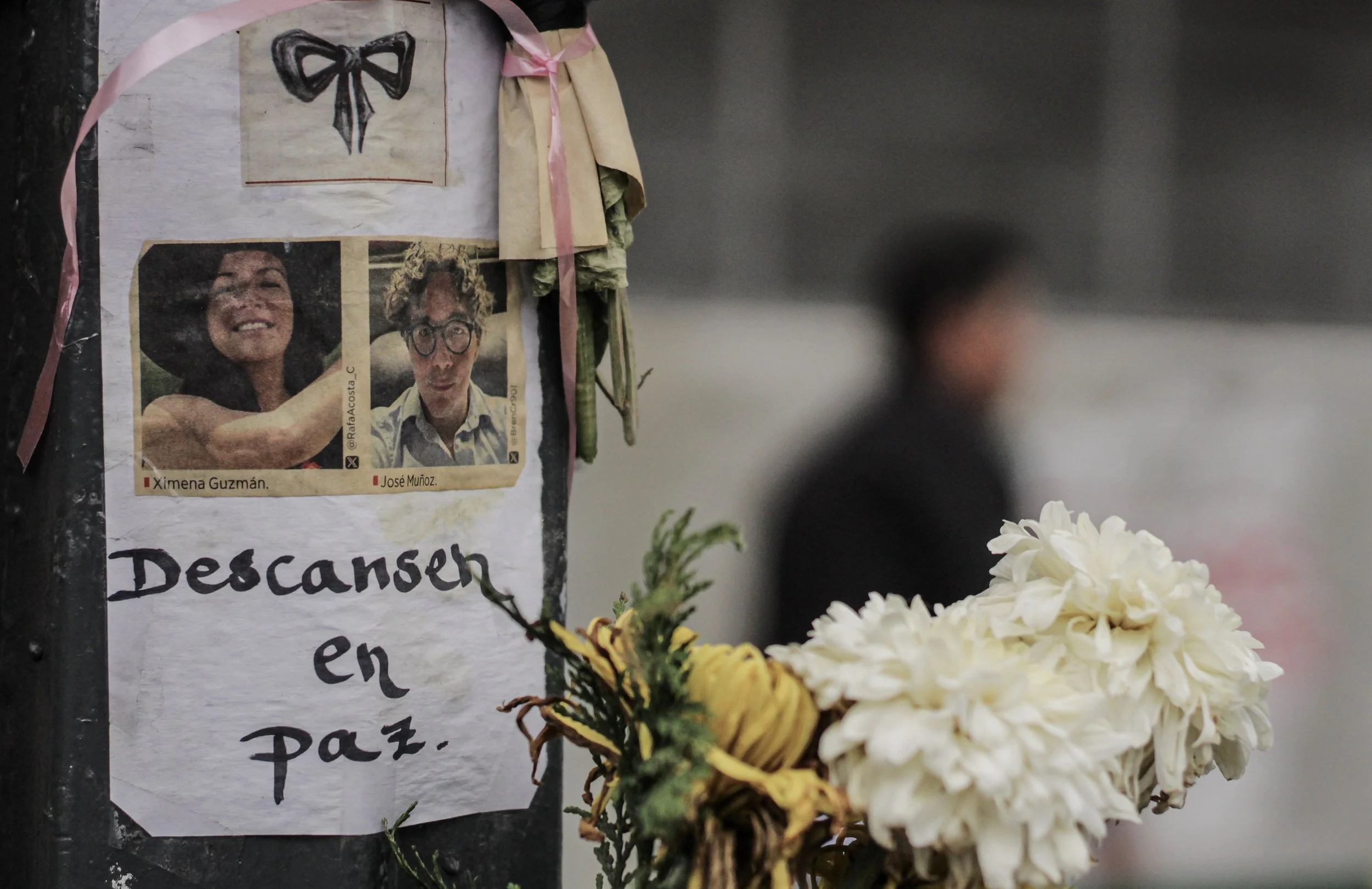Amid international fallout, a local tragedy
by Madeleine Wattenbarger.
Until last week, Ximena Guzmán Cuevas and José Muñoz were not public figures. Longstanding members of the ruling Morena Party, they both held senior positions in Mexico City’s government. Guzmán worked as Mayor Clara Brugada’s personal secretary; Muñoz as an adviser, coordinating closely with the national government, including on security issues. On Tuesday, May 20, a little after 7 a.m., Guzmán pulled over on a busy stretch of Tlalpan Avenue to pick up her coworker. A gunman fired twelve shots into the car, killing both Ximena and Pepe.
The assassination was timed for maximum visibility: up the road, in the National Palace and in view of the press, Security Secretary Omar García Harfuch informed President Sheinbaum of the events. She announced the news live to the nation.
A week later, information is scarce and the suspects remain at large. At a press conference the day after the murders, Mexico City’s top prosecutor, Bertha Alcalde Luján, and Public Security Secretary Pablo Vázquez Camacho refrained from answering questions about possible motives. The location, timing, and calculated execution suggest a professional hit: the assassins worked in a trio, used gloves to avoid leaving fingerprints, and escaped in a stolen car into the eastern fringes of Mexico State.
“Whoever executed this attack had full knowledge of the media impact, in terms of polls, image and popularity, that an event of this nature can cause,” says security analyst David Saucedo. While the victims worked for Brugada, the capital’s security officials’ close alignment with Sheinbaum – and the timing that amplified the incident’s visibility – means the killing strikes at the heart of the federal government.
The shots reverberated as far as Washington, where US Secretary of State Marco Rubio commented on the assassinations later that same day. At home, pundits and politicians also seized on the incident to decry the ruling party’s security strategy. “A certain sector of the media and economic establishment has an interest in undermining Morena’s power,” says journalist and political analyst Témoris Grecko. “The events work for them to generate the idea that Mexico City isn’t protected against crime, that there’s a progressive deterioration of security… and the government isn’t in control.”
The two victims became protagonists of the highest-profile attack in the capital since the 2020 attempt on Omar García Harfuch, then the metropolis’s security secretary. But beyond the international fallout lies a local and personal tragedy. Brugada had known José Muñoz since he was “practically a child,” the mayor said in a press conference. Guzmán, in turn, was her right hand. Before becoming Brugada’s personal secretary, she was a national track and field champion - the kind of athlete who embraced her rivals after a race. After earning a master’s degree in sports sociology in Paris, she began her public service career as education director in Mexico City’s Iztapalapa district.
“She worked for and with the people,” says Salvador Gutiérrez, who first met Guzmán as a fellow student athlete at the UAM in 2005. They went on to collaborate on sports and education programs. At the time, a majority of students in Iztapalapa failed the high school entrance exam. Guzmán led an academic enrichment program, Iztapalapa Prepara, to prepare them for a second try. After a year, Gutiérrez recalls, some 80% of participants were admitted to their first-choice schools.
The murders have resonated far beyond the political establishment; the victims are remembered more for their ideals than for their affiliations. Flowers, candles, and handwritten posters now mark the sidewalk near Metro Xola, where the two were gunned down. A communiqué honoring Guzmán’s memory has garnered signatures from international athletes. Among the tributes circulating on social media is a poster by graphic artist Gran OM, known for work supporting the Zapatistas and the 43 disappeared Ayotzinapa students.
“We shared a desire for justice, equality and just causes, seeing how we could make the world a better place,” says Emiliano Piña, Guzmán’s partner of 21 years. “She leaves us a motivation to keep walking, to take up the flag of her ideals.”


